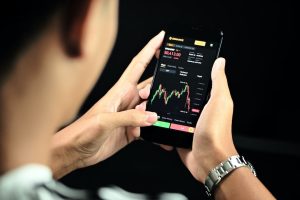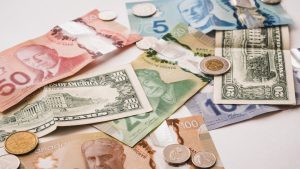Forex trading, also known as foreign exchange trading, is the act of buying and selling currencies in the foreign exchange market. This market is the largest financial market in the world, with an average daily trading volume of over $5 trillion. One of the key aspects of forex trading is the spread, which is the difference between the bid price (the price at which a trader can sell a currency) and the ask price (the price at which a trader can buy a currency). In this article, we will explore who makes the spread in forex trading.
The spread in forex trading is determined by the liquidity providers, also known as market makers, who are responsible for providing the prices at which traders can buy and sell currencies. These liquidity providers are large financial institutions such as banks, hedge funds, and other institutional investors. They play a crucial role in the forex market by providing liquidity, which allows traders to buy and sell currencies easily.
When a trader places an order to buy or sell a currency, the order is sent to the liquidity provider, who then determines the price at which the order can be filled. The liquidity provider will offer a bid price and an ask price, and the difference between these two prices is the spread. The liquidity provider earns a profit by offering a spread that is higher than the actual market price of the currency.
It is important to note that the spread can vary depending on the liquidity provider and the currency pair being traded. Some liquidity providers may offer tighter spreads, which means that the difference between the bid and ask price is smaller, while others may offer wider spreads. The spread can also vary depending on market conditions, such as volatility and liquidity.
In addition to liquidity providers, forex brokers also play a role in determining the spread in forex trading. Forex brokers act as intermediaries between traders and liquidity providers, and they earn a commission or a markup on the spread for each trade. The markup is the difference between the spread offered by the liquidity provider and the spread offered by the broker to the trader.
Forex brokers can offer different types of spreads, such as fixed spreads and variable spreads. Fixed spreads remain the same regardless of market conditions, while variable spreads can change depending on market volatility and liquidity. Forex brokers may also offer different spreads for different account types, with higher spreads for smaller account sizes.
Another factor that can affect the spread in forex trading is the type of order placed by the trader. Market orders, which are executed at the current market price, are more likely to be filled at the current spread. However, limit orders, which are executed at a specific price, may not be filled if the market price does not reach the specified price, which can result in a wider spread.
In conclusion, the spread in forex trading is determined by the liquidity providers, who offer the bid and ask prices at which traders can buy and sell currencies. Forex brokers act as intermediaries between traders and liquidity providers, and they earn a commission or a markup on the spread for each trade. The spread can vary depending on the liquidity provider, the currency pair being traded, market conditions, and the type of order placed by the trader. As a trader, it is important to understand who makes the spread in forex trading in order to make informed trading decisions.






